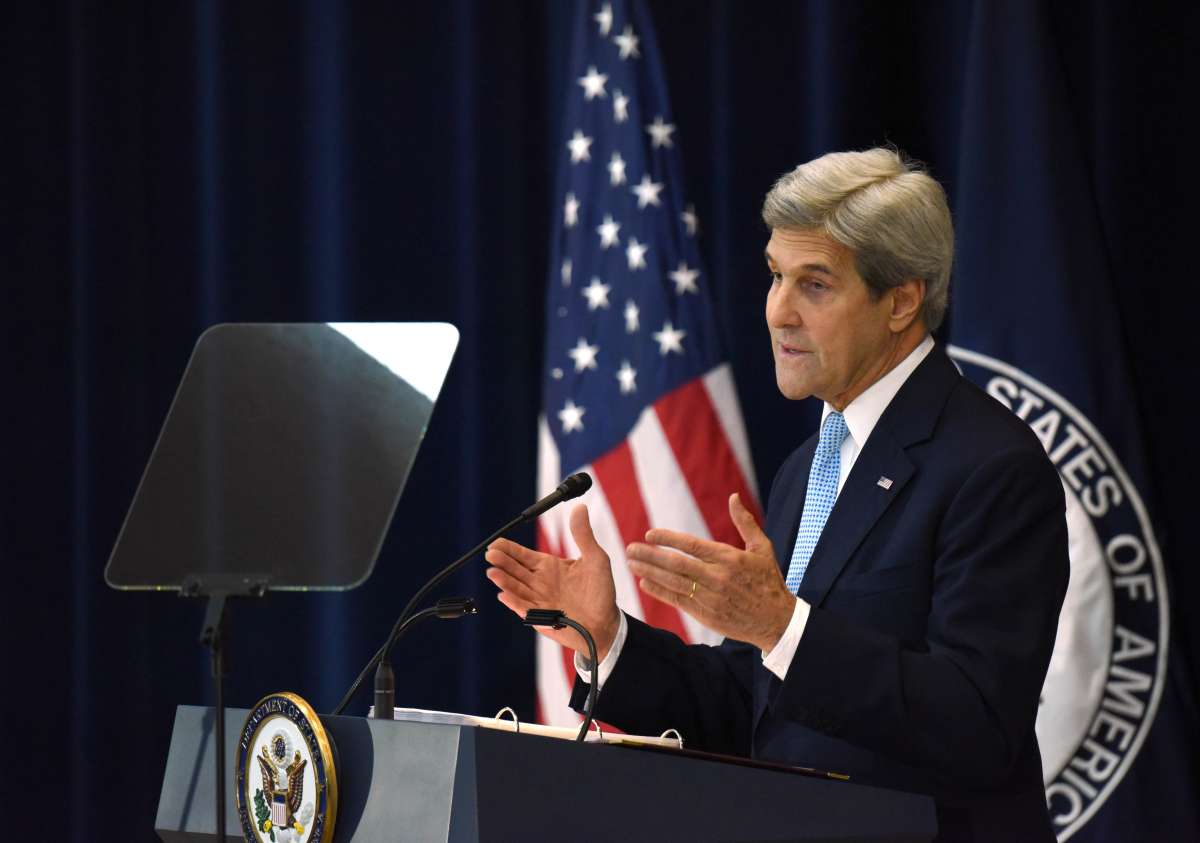Confirming Kerry’s visit, Beijing’s Ministry of Ecology and Environment said the two sides would “have an in-depth exchange of views on cooperation in tackling climate change.”…reports Asian Lite News
US envoy John Kerry will travel to China on Sunday, the State Department said, as the world’s two biggest polluters work to restart talks on climate change.
The July 16-19 trip will be Kerry’s third since taking the special climate envoy position under President Joe Biden, and he will also become the third top administration official to head to the country in recent weeks.
Kerry will follow in the footsteps of Secretary of State Antony Blinken, who last month paid the highest-ranking US visit to Beijing in nearly five years, and Treasury Secretary Janet Yellen who was in China last week.
“Kerry aims to engage with the PRC on addressing the climate crisis, including with respect to increasing implementation and ambition and promoting a successful COP28,” the State Department said in a press release Tuesday, using an acronym for the People’s Republic of China.
The United Arab Emirates will host the UN COP28 climate talks starting in November, with nearly 200 nations gathering to wrestle with how to mitigate global warming and its impacts.
Confirming Kerry’s visit, Beijing’s Ministry of Ecology and Environment said the two sides would “have an in-depth exchange of views on cooperation in tackling climate change.”
The United States and China are the world’s largest emitters of greenhouse gases as well as some of the world’s biggest investors in renewable energy.
Kerry, a former US secretary of state, has enjoyed comparatively cordial and consistent relations with China, with the Biden administration identifying climate as an area for potential cooperation despite tensions elsewhere.
But China last year briefly said it was suspending talks on climate in anger after Nancy Pelosi, then speaker of the House of Representatives, defiantly visited Taiwan, the self-ruling democracy claimed by Beijing.
Xi orders reform of power system
Meanwhile, China is looking to plug dangerous holes in its power system as it scrambles to shore up energy security – including in oil, natural gas and power supply networks – with fresh vows by leadership in reform proposals that also blame a persistent power crisis on excessive carbon-reduction goals.
President Xi Jinping, at a meeting of the Central Commission for Comprehensively Deepening Reform on Tuesday, said China must “address the prominent problems in the oil and gas system” and “deepen the reform of the power system”, party mouthpiece Xinhua reported.
“Focusing on improving national oil and gas security capacities … we must actively and steadily promote the systematic reform of the upstream, midstream and downstream of the oil and gas industry, to ensure stable and reliable supplies,” Xi said.
In terms of the power supply, Xi said China must accelerate the construction of a power system that is “green and low-carbon, secure and abundant, economically efficient, flexible, and intelligent in supply and demand coordination”.
“[China] should better promote the energy production and consumption revolution, and ensure national energy security,” he said.
Xi’s remarks come as the Ukraine war has raised uncertainties for China – the world’s largest energy importer and consumer – amid a more politicised global energy market, and a persistent power crisis amid a decarbonisation campaign and climate change.
The commission also heard that the country needs to enhance market supervision, improve market order, and promote fair competition in the oil and gas market, while deepening the reform of the reserve system to meet any urgent demands, Xinhua said.
China’s oil and gas sector – especially the upper-stream exploration and exploitation – has long been dominated by state-owned enterprises, and the monopoly has resulted in a lack of both efficiency and international competitiveness. This further adds to national security concerns, as the country imports more than 70 per cent of its crude oil and more than 40 per cent of its natural gas.

